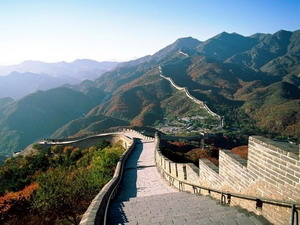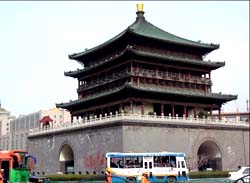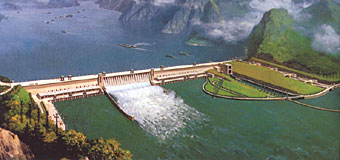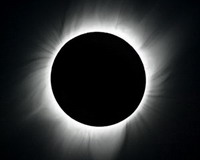| Day 1 Beijing ( ) |
| Upon arrival at Beijing airport, pick up by our English speaking tour guide and drive to hotel. Free time for the rest of the day. Recommend you to take a walk on Wangfujing Streeet, the most busy shopping area in Beijing (optional). |
| Wangfujing Streeet | It is the grandest shopping area in Beijing, congested with modern shopping malls, such as the Oriental Plaza, Wangfujing Department Store, etc. It is also home to a wealth of hotels and specialty shops. Around is an afflicted snack street where you can enjoy the most authentic Beijing snacks. |
|
 |
| [ Optional ] Badaling Great Wall: This sector is the first opened to tourists and the best preserved. Fully restored in 1957, it can be seen how it looked when it was first built in the Ming dynasty. Set in a steep, forested mountain range, Badaling offers superb views and good hiking experience. |
|
| Day 2 Beijing ( B,L,D ) |
|
| Temple of Heaven | It was the place where the Emperor of the Ming and Qing dynasties would worship heaven and pray for good harvests. Built first in 1420, the Temple of Heaven is a precious example of China 's ancient architectural art and the largest design for worshipping heaven in the world. | | Tian An Men Square | As the largest city plaza in the world, it is of great cultural significance for its seeing of several key events in Chinese history. Today here are always sightseers and kite-flyers. Most visit at dawn or dusk to see the flag raising and lowering conducted by the PLA. | | Peking Opera | With a history of 160 years, Peking Opera, extolled as “Oriental Opera”, is representative of all operas in China. Full of Chinese cultural traditions and tidbits, the opera presents the audience with touching stories, beautiful paintings, exquisite costumes, graceful gestures and martial arts. | | Forbidden City | For almost 500 years, the Forbidden City served as the home of 24 Emperors and their households, and the ceremonial and political center of the Chinese imperial government. It was listed by UNESCO as a World Cultural Heritage Site in 1987. |
|
 |
| [ Optional ] Ancient City Wall: It is the most well-preserved ancient military defensive systems in the world. It is composed of the moat, hanging bridges, battlements, watchtowers, tunnels and parapet. Today, the roadway is a promenade enjoyed by strolling tourist. Cycling on the wall with families is a great thing! |
|
| Day 3 Beijing ( B,L,D ) |
|
| Sacred Way | It was originally built to lead to Changling Tomb as a symbol of the passed emperor’s journey to heaven in their afterlife. Alongside the Sacred Road are 12 pairs of animal marble figures such as lions, elephants and 6 pairs human marbles such as generals and public officials. | | Ming Tombs (Changling) | Changling Tomb is the largest and the most well-preserved one of the 13 Ming Tombs. Emperor Zhu Di, the third emperor of Ming Dynasty, and his Empress are co-buried in this grave. The 32 giant pillars in the Ling’en Hall, Changling’s main building, remain as solid as before after over 500 years. | | Peking Roast Duck | With its long history, Peking roast duck is well known among both domestic and overseas customers. The duck is hung in the oven and roasted by flame burning from fruit-wood. It takes about 45 minutes for the duck to be done. The finished duck is characteristic with crispy skin, tender meat and the f…… | | Badaling Great Wall | This sector is the first opened to tourists and the best preserved. Fully restored in 1957, it can be seen how it looked when it was first built in the Ming dynasty. Set in a steep, forested mountain range, Badaling offers superb views and good hiking experience. |
|
 |
| [ Optional ] The Three Gorges Dam: Three Gorges Dam, the largest water conservancy project ever undertaken by man and it has been a dream for several generations of Chinese people. It is 2,335 meters long, 185 meters high, 18 meters wide on the top and 130 meters wide at the bottom. |
|
| Day 4 Beijing, Xian ( B,L ) |
| After our Beijing city tour, transferred to Beijing airport for the flight to Xi'an. Upon arrival at Xi'an airport, pickup by our English speaking tour guide and drive to the hotel. |
| Beijing Olympic Green | The Olympic Green is an Olympic Park in Beijing, China constructed for the 2008 Summer Olympics. It is located at the north end of the central axis of Beijing City. A forest park, a central area including competition venues, Olympic Village, the Main Press Center (MPC), and the International Broadca…… | | Hutong Tour by Rickshaw | Hutongs are small alleyways where people live together in communities of homes packed into a small area,just like a museum of Beijing's folk customs. Exploring Hutongs by rickshaw can find the residents playing Chinese chess, Mahjong,etc. | | Olympic Stadium (Bird Nest) | The National Stadium, also named the “Bird’s Nest” due to its iconic design was the key competition venue of the Beijing 2008 Olympic Games. The stadium looks like a nest from the outside, symbolizing a cradle holding the hopes of mankind for the future. | | Summer Palace | The Summer Palace deserves your visit to her exquisite buildings, long corridor, and beautiful bridges. Her shoreline pathway makes an excellent run or walk for you. It was a luxurious imperial garden for royal families to rest and entertain in Chinese Qing Dynasty. |
|
 |
| [ Optional ] The solar eclipse in China on July 22-2009: The solar eclipse that will take place on Wednesday, July 22, 2009 will be a total eclipse of the Sun with a magnitude of 1.080 that will be visible in Chengdu, Chongqing, Wuhan, Hangzhou and Shanghai, etc. The solar eclipse is the longest total solar eclipse that will occur in the twenty-first century. |
|
| Day 5 Xian ( B,L ) |
|
| Xian Bell Tower | Built in 1384 A.D, the Bell Tower boasts a history of over 600 years. It is the largest and best-preserved of its kind in China. Visiting the Bell Tower, you can still see the Big Iron Bell which was made in Ming Dynasty, 2,500 kilograms in weight. | | Big Wild Goose Pagoda | It was built in 652 during the Tang Dynasty and currently boasts height of seven stories. It’s said that Master Xuan Zang built this pagoda to house the Buddhist scriptures and relics he had brought back from India. | | Terra Cotta Warriors and Horses Museum | Terracotta Warriors is the underworld terracotta army of Emperor Qin Shihuang (the first unifier of China, 259BC-210BC). It’s reputed as the Eighth Miracle of the World. Now the Terracotta Museum consists of Pit 1, Pit 2, Pit 3 and Pit 4 as well as the Hall of the two bronze chariots and horses. |
|
|
|
|